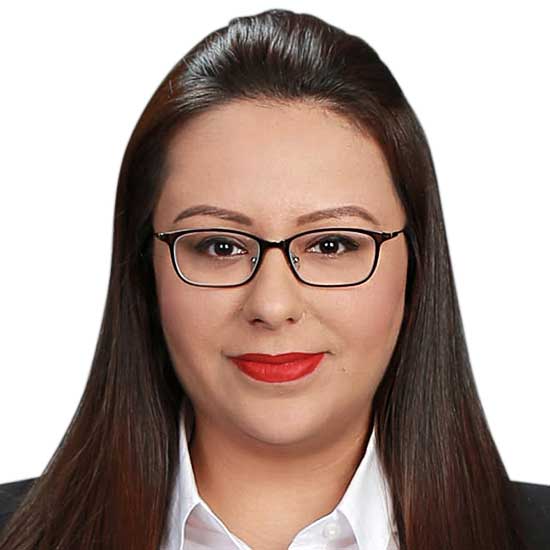Probate & Letters of Administration Services in Singapore
What is Grant of Probate in Singapore and Letter of Administration Singapore?
When a loved one passes away, the process of managing their affairs can be overwhelming. In Singapore, obtaining a grant of probate or letters of administration is essential for the survivors to have the legal authority to administer the deceased’s estate. These legal documents empower them to handle the distribution of assets and settle other important matters.
Grant of Probate: Administering an Estate According to the Deceased’s Will
If the deceased left a valid will, their estate will be distributed according to their wishes. The executor(s) named in the will play a crucial role in applying for a grant of probate from the court. This legal document authorizes the executor(s) to carry out the instructions specified in the will and manage the distribution of assets to the beneficiaries.
Letters of Administration: Administering an Estate without a Valid Will
In cases where the deceased did not leave a will or a valid will, the distribution of assets is governed by the Intestate Succession Act in Singapore. The Act determines how the estate will be distributed among the deceased’s next of kin. In such situations, a spouse or the next of kin can apply for letters of administration to be appointed as the personal representative of the estate.
Key Differences between Grant of Probate and Letters of Administration
While both grant of probate and letters of administration serve the purpose of facilitating the administration of an estate, there are significant differences between the two:
- Valid Will: The grant of probate is applicable when the deceased left a valid will, whereas letters of administration are sought when there is no valid will.
- Executor vs. Personal Representative: In a grant of probate, the executor(s) named in the will act as the legal representative(s) of the estate. On the other hand, letters of administration appoint a personal representative, usually the spouse or next of kin, to manage the estate in the absence of a will.
- Distribution of Assets: A grant of probate ensures that the assets are distributed according to the instructions specified in the will. In contrast, letters of administration distribute the assets based on the legal hierarchy outlined in the Intestate Succession Act.
Importance of Professional Guidance for obtaining Grant of Probate & Letters of Administration
Administering an estate involves legal complexities that require professional guidance. Experienced grant of probate and/or letter of administration lawyers can provide valuable advice and support throughout the process. They ensure that all legal requirements are met, minimize the risk of errors, and help expedite the management and distribution of the deceased’s estate.
Key duties of Executors when you have obtained Grant of Probate
The duties of an executor under Singapore law involve several key responsibilities. Here is a summary of these duties:
- Obtain Grant of Probate: The executor’s first duty is to apply for a Grant of Probate from the court. This legal document authorizes the executor to administer the deceased’s estate according to the instructions outlined in the will.
- Gather and Protect Assets: The executor must locate, gather, and protect all assets belonging to the estate. This includes property, bank accounts, investments, and personal belongings. It is crucial to ensure the safekeeping of these assets during the administration process.
- Pay Debts and Expenses: The executor is responsible for identifying and settling any outstanding debts or expenses owed by the deceased. This may involve paying off loans, outstanding bills, funeral expenses, and taxes.
- Distribute Assets: The executor must distribute the assets of the estate to the beneficiaries as specified in the will. This involves identifying and locating all beneficiaries, ensuring the fair and accurate distribution of assets, and addressing any specific bequests or conditions mentioned in the will.
- Keep Accurate Records: It is essential for the executor to maintain accurate records of all financial transactions, correspondence, and documentation related to the estate administration. This includes keeping track of expenses, income generated by estate assets, and any legal proceedings or disputes.
- Act in the Best Interest of Beneficiaries: The executor has a fiduciary duty to act in the best interest of the beneficiaries. This means making decisions and taking actions that protect and maximize the value of the estate for the beneficiaries, while complying with legal obligations and the instructions of the will.
- Communicate with Beneficiaries: The executor should keep the beneficiaries informed about the progress of the estate administration, including providing regular updates and responding to their inquiries. Clear and open communication helps maintain transparency and trust throughout the process.
- Finalize the Estate: Once all debts, taxes, and expenses have been settled, and the assets have been distributed to the beneficiaries, the executor’s final duty is to close the estate. This involves preparing the final accounts, obtaining any necessary clearances or approvals, and filing the necessary documents with the court.
It is important to note that the specific duties and obligations of an executor can vary depending on the complexity of the estate and the provisions outlined in the will. Executors may also seek professional assistance from grant of probate lawyers or professionals to ensure compliance with the law and the efficient administration of the estate.
Key duties of Administrators when you have obtained Letter of Administration
The key duties of administrators under Singapore law involve important responsibilities in administering the estate of a deceased individual when there is no valid will. Here is a summary of these duties:
- Obtain Letters of Administration: The administrator’s primary duty is to apply for Letters of Administration from the court. This legal document grants the administrator the authority to manage and distribute the assets of the deceased’s estate according to the rules of intestacy.
- Identify and Locate Assets: The administrator must identify and locate all assets belonging to the estate. This includes bank accounts, investments, properties, and personal belongings. It is crucial to gather a comprehensive inventory of the estate’s assets for proper administration.
- Determine Legal Heirs: The administrator has the responsibility to determine the legal heirs entitled to inherit the estate under the rules of intestacy. This involves tracing and verifying the deceased’s next of kin and their respective shares in the estate.
- Pay Debts and Expenses: The administrator is responsible for settling any outstanding debts, liabilities, and expenses owed by the deceased. This may include funeral expenses, outstanding bills, taxes, and any other obligations.
- Distribute Estate According to Intestate Succession Act: The administrator must distribute the assets of the estate according to the rules outlined in the Intestate Succession Act. This act provides a legal framework for determining how the estate will be distributed among the legal heirs based on their relationship to the deceased.
- Maintain Accurate Records: It is essential for the administrator to keep accurate records of all financial transactions, correspondence, and documentation related to the estate administration. This includes records of assets, debts, expenses, distributions, and any legal proceedings or disputes.
- Act in the Best Interest of Beneficiaries: The administrator has a fiduciary duty to act in the best interest of the beneficiaries. This involves making decisions that protect and maximize the value of the estate for the legal heirs, while ensuring compliance with legal obligations and the rules of intestacy.
- Communicate with Beneficiaries: The administrator should maintain open and transparent communication with the legal heirs throughout the administration process. This includes providing regular updates, responding to inquiries, and addressing any concerns or questions raised by the beneficiaries.
- Finalize the Estate: Once all debts and liabilities have been settled, and the assets have been distributed to the legal heirs, the administrator’s final duty is to conclude the estate administration. This involves preparing final accounts, obtaining necessary clearances or approvals, and filing the required documents with the court.
It is important to note that the duties of administrators may vary depending on the complexity of the estate and the specific circumstances of each case. Administrators may also seek professional assistance from letter of administration lawyers or professionals to ensure compliance with the law and the efficient administration of the estate.
Process of applying for a Grant of Probate
- The required documents include the ex parte originating summons, Statement for Probate or Administration, certified true copies of the Death Certificate and the will, and the results of the caveat and probate search.
- The original will must be submitted to the court for verification. Exceptions apply for cases where the original will is in the custody of a foreign court or has been lost.
- The Schedule of Assets must be completed, listing the deceased’s properties and outstanding debts. If asset details are not initially available, a supplementary affidavit and Schedule of Assets can be filed later.
- A probate hearing is scheduled, and supporting documents like the administration oath and supporting affidavit must be filed.
- A final search is conducted, and if all documents are in order, the court prepares and issues the Grant of Probate.
- The timeframe for obtaining a Grant of Probate varies but can range from 2 to 6 months.
- Once the Grant of Probate is obtained, the executor(s) or trustee(s) can manage and distribute the deceased’s assets.
Process of applying for Letters of Administration
- Determine eligibility: Confirm that you meet the eligibility criteria as a spouse, child, parent, sibling, or other relative of the deceased who is entitled to apply for Letters of Administration.
- Prepare required documents: Obtain and fill in the necessary forms, , Schedule of Assets (Form 226), and Renunciation of beneficiaries with prior right form if applicable. Gather supporting documents such as certified true copies of the death certificate of the deceased, death certificates of next-of-kin if applicable, divorce certificate if applicable, and any foreign grants or inheritance certificates if relevant.
- Conduct a search: Conduct a search for existing caveats, probate applications, or claims to administer the estate. Attach full and summary reports of the search to your application.
- Submit the application: The court will review and either accept or reject the application within 1-3 weeks. Correct any errors if your application is rejected.
- File the supporting affidavit and administration oath: Prepare and file the Supporting Affidavit (Form 225) and Administration Oath (Form 54) within 14 days of filing your application. These documents confirm the details of the application and your commitment to faithfully administer the estate. They must be sworn or affirmed before a Commissioner for Oaths.
- Prepare the Schedule of Assets: Fill in the Schedule of Assets (Form 226) listing the deceased’s assets in Singapore and overseas, along with any outstanding debts secured by mortgage. If you don’t have all the asset information, you can submit the supporting affidavit and administration oath first and obtain the asset details later.
- File the complete Schedule of Assets: Once you have gathered all the necessary information, file the complete Schedule of Assets, along with a supplementary affidavit, if needed. Both documents should be sworn or affirmed before a Commissioner for Oaths.
- Grant approval and extraction: If there are no issues with the application, the court should approve the Grant of Letters of Administration and issue an “Order in Terms.” Conduct a final caveat and probate search and file the results. Then, apply to extract the grant using the Request to Extract Grant form.
- Estate distribution: Once you have the Grant of Letters of Administration, you can begin managing and distributing the deceased’s estate according to the Intestate Succession Act. Follow the rules outlined in the act regarding the distribution of assets based on the surviving relatives.
Case Study 1: Grant of Probate
Mr. Lee passed away, leaving behind a valid will outlining the distribution of his assets among his children. The appointed executor, his eldest son, applied for a grant of probate to administer the estate. With the assistance of experienced estate lawyers, the executor successfully obtained the grant of probate from the court. This allowed him to fulfill his responsibilities in accordance with his father’s wishes and distribute the assets as specified in the will. The grant of probate provided the legal authority and credibility required to carry out the estate administration smoothly and efficiently.
Case Study 2: Letters of Administration
Ms. Chen, a widow, passed away without leaving a valid will. As there was no specific instruction regarding the distribution of her estate, her daughter, Ms. Wong, applied for letters of administration to become the personal representative of the estate. With the guidance of knowledgeable estate lawyers, Ms. Wong successfully obtained the letters of administration, enabling her to handle her mother’s estate according to the Intestate Succession Act. She diligently identified the assets, settled any outstanding debts, and distributed the remaining assets among the rightful heirs as determined by the legal hierarchy. The letters of administration granted her the legal authority and legitimacy to carry out the estate administration process effectively.
These case examples highlight the importance of obtaining the appropriate legal document, whether it be a grant of probate or letters of administration, depending on the circumstances. Seeking professional guidance from experienced grant of probate and letters of administration lawyers can greatly facilitate the estate administration process and ensure compliance with legal requirements.
FAQS on Grant of Probate and Letters of Administration
-
General
Q1: What is the Grant of Probate?
A1: The Grant of Probate is a legal document issued by the court that confirms the validity of a deceased person’s will and authorizes the executor(s) named in the will to administer the estate and distribute assets according to the deceased’s wishes.
Q2: What are Letters of Administration?
A2: Letters of Administration are a legal document issued by the court when a person passes away without leaving a valid will. It grants authority to an administrator to manage and distribute the deceased’s estate following the rules of intestate succession or Muslim law.
Q3: What is the key difference between Grant of Probate and Letters of Administration?
A3: The key difference lies in the presence or absence of a valid will. Grant of Probate applies when there is a valid will, whereas Letters of Administration are sought when there is no valid will.
Q4: When is Grant of Probate applicable, and when do I need Letters of Administration?
A4: Grant of Probate is applicable when the deceased left a valid will. Letters of Administration are needed when the deceased did not leave a valid will or in cases of will-related issues such as the absence of executors or renunciation.
Q5: How can I determine if a deceased person had a valid will or died intestate?
A5: To determine if a deceased person had a valid will, you may need to search for the original will or consult their legal advisor. If no will is found, it is assumed the person died intestate, and the estate will be administered according to intestacy laws or Muslim law.
-
Grant of Probate:
Q6: What is the purpose of Grant of Probate?
A6: The purpose of Grant of Probate is to legally authorize the executor(s) named in the will to carry out the deceased’s wishes, manage the estate, and distribute assets to the beneficiaries.
Q7: Who can apply for Grant of Probate?
A7: The executor(s) named in the will can apply for Grant of Probate. If there is more than one executor, they can apply jointly or individually.
Q8: What documents are required to apply for Grant of Probate?
A8: The required documents include the original will, the death certificate of the deceased, an application form, an inventory of assets and liabilities, and any other supporting documents as required by the court.
Q9: How long does it take to obtain Grant of Probate?
A9: The timeframe can vary depending on the complexity of the estate and any potential disputes. Typically, it takes about 2 to 6 months to obtain Grant of Probate.
Q10: Can I apply for Grant of Probate without legal representation?
A10: Yes, it is possible to apply for Grant of Probate without legal representation. However, given the legal complexities involved, it is advisable to engage an experienced estate lawyer to ensure a smooth and accurate application process.
-
Letters of Administration:
Q11: What is the purpose of Letters of Administration?
A11: The purpose of Letters of Administration is to authorize an administrator to manage and distribute the estate of a deceased person who did not leave a valid will.
Q12: Who can apply for Letters of Administration?
A12: The court grants Letters of Administration to the deceased’s spouse, next-of-kin, or any other person entitled according to the priority list under the Intestate Succession Act or Muslim law.
Q13: What documents are required to apply for Letters of Administration?
A13: The required documents include the death certificate of the deceased, an application form, an inventory of assets and liabilities, a renunciation form (if applicable), and any other supporting documents as required by the court.
Q14: How long does it take to obtain Letters of Administration?
A14: The processing time can vary depending on the complexity of the estate and any potential disputes. Generally, it takes about 4 to 8 months to obtain Letters of Administration.
Q15: Can I apply for Letters of Administration without legal representation?
A15: Yes, it is possible to apply for Letters of Administration without legal representation. However, due to the legal complexities involved, it is advisable to engage an experienced estate lawyer to ensure a smooth and accurate application process.
-
Executors and Administrators:
Q16: What are the duties and responsibilities of an executor?
A16: The duties and responsibilities of an executor include:
- Gathering and safeguarding the deceased’s assets.
- Paying off any outstanding debts and taxes owed by the estate.
- Distributing the remaining assets to the beneficiaries as specified in the will.
- Managing and administering the estate during the probate process.
- Acting in the best interests of the estate and its beneficiaries.
- Keeping accurate records of all financial transactions related to the estate.
- Filing necessary tax returns and ensuring compliance with legal requirements.
- Making informed decisions and seeking professional advice when needed.
Q17: Can an executor be removed or replaced?
A17: Yes, an executor can be removed or replaced in certain circumstances. This may occur if the executor is unable or unwilling to fulfill their duties, acts contrary to the best interests of the estate, or engages in misconduct. The court has the authority to remove or replace an executor based on an application made by interested parties or beneficiaries.
Q18: What are the duties and responsibilities of an administrator?
A18: The duties and responsibilities of an administrator include:
- Collecting and safeguarding the deceased’s assets.
- Paying off any outstanding debts and taxes owed by the estate.
- Distributing the remaining assets to the beneficiaries according to the laws of intestate succession.
- Managing and administering the estate in a diligent and responsible manner.
- Acting in the best interests of the estate and its beneficiaries.
- Keeping accurate records of all financial transactions related to the estate.
- Filing necessary tax returns and ensuring compliance with legal requirements.
- Making informed decisions and seeking professional advice when needed.
Q19: Can an administrator be removed or replaced?
A19: Yes, an administrator can be removed or replaced under certain circumstances. If an administrator fails to fulfill their duties or acts in a manner contrary to the best interests of the estate, interested parties or beneficiaries can apply to the court for their removal or replacement. The court will consider the circumstances and make a decision based on what is in the best interests of the estate.
-
Intestate Succession:
Q20: What happens if someone dies without leaving a valid will?
A20: When someone dies without leaving a valid will (intestate), their estate will be distributed according to the laws of intestate succession. The court will appoint an administrator, usually a close family member, to manage the estate and distribute the assets among the eligible beneficiaries.
Q21: How is the distribution of assets determined under intestate succession?
A21: The distribution of assets under intestate succession is determined based on the Intestate Succession Act (ISA) for non-Muslims or Muslim law (Administration of Muslim Law Act) for Muslims. The law specifies a hierarchy of beneficiaries, such as the spouse, children, parents, siblings, etc., and outlines the proportionate shares they are entitled to receive from the estate.
Q22: Who are the priority beneficiaries under the Intestate Succession Act?
A22: The priority beneficiaries under the Intestate Succession Act for non-Muslims are:
- Spouse
- Children
- Parents
- Siblings
- Nephews and nieces
- Grandparents
- Uncles and aunts
- For Muslims, the priority beneficiaries are determined based on Islamic law and the Inheritance Certificate issued by the Syariah Court.
Q23: Can the distribution of assets be challenged under intestate succession?
A23: Yes, the distribution of assets under intestate succession can be challenged if there are grounds to believe that the distribution is not in accordance with the applicable laws. Interested parties or beneficiaries can seek legal advice and initiate legal proceedings to challenge the distribution if they believe their rights have been infringed.
-
Professional Guidance and Legal Assistance:
Q24: Do I need a lawyer to apply for Grant of Probate or Letters of Administration?
A24: While it is possible to apply for Grant of Probate or Letters of Administration without a lawyer, it is highly recommended to seek professional legal assistance. Estate matters can be legally complex, and an experienced Grant of Probate or Letter of Administration Lawyer can provide valuable guidance, ensure compliance with legal requirements, and streamline the application process, reducing the risk of errors or delays.
Q25: What are the benefits of engaging a Grant of Probate or Letter of Administration Lawyer?
A25: Engaging an experienced Grant of Probate or Letter of Administration lawyer offers several benefits, including:
- Expertise: Grant of Probate or Letter of Administration lawyer have in-depth knowledge of probate and estate administration laws and procedures.
- Guidance: They can provide personalized advice based on the specific circumstances of your case.
- Legal Compliance: Lawyers ensure compliance with legal requirements, minimizing the risk of mistakes or disputes.
- Efficiency: They can streamline the application process, saving you time and effort.
- Representation: Lawyers can represent your interests in court if disputes arise during the probate process.
- Peace of Mind: Having a lawyer handle complex legal matters provides peace of mind during a challenging time.
Q26: How do I choose the right Grant of Probate or Letter of Administration lawyer for my case?
A26: When choosing Grant of Probate or Letter of Administration lawyer, consider the following factors:
- Experience: Look for a lawyer with substantial experience in estate planning, probate, and administration.
- Expertise: Ensure the lawyer specializes in Grant of Probate or Letter of Administration lawyer and has a strong track record in handling similar cases.
- Reputation: Research the lawyer’s reputation, read client reviews, and seek recommendations from trusted sources.
- Communication: Choose a lawyer who communicates clearly, listens attentively, and keeps you informed throughout the process.
- Cost: Discuss fees and billing structures upfront to ensure they align with your budget and expectations.
- Compatibility: Select a lawyer you feel comfortable working with and who understands your needs and objectives.
Legal Advice on Grant of Probate and Letters of Administration
The Straits Times, in collaboration with Statista, has recognized I.R.B Law as one of the leading lawyers in Singapore. This honor mirrors our unwavering commitment to legal excellence and our ability to deliver exceptional legal services tailored to our clients’ unique needs.
Trust in our dedicated team’s ability to guide you through this complex process with competence, compassion, and respect. Our team’s dedication, coupled with our experience in dealing with diverse and complex cases, makes us your ideal ally in seeking a successful resolution to your legal process in Singapore.
Author: Mohamed Baiross/IRB LAW LLP


Contact us for a free initial consultation.
Frequently Asked Questions
Not sure about the process or timelines of the grant of probate or letters of administration? Check out our FAQs or head over to the learning centre to find out more.
Do I really need a lawyer?
How long does the Letter of Administration process take?
How long does a Grant of Probate take?
What is an Executor and what do they do?
Our Probate & Letter of Administration Team
Mohamed Baiross
Founding Partner
Baiross is the managing partner of IRB Law LLP. He is an experienced lawyer with an excellent reputation across a broad selection of practice areas including divorce, insolvency, crime, probate, syariah, and civil litigation.
Kulvinder Kaur
Partner
Kulvinder’s practice focuses on civil and commercial litigation, and matrimonial affairs. She has successfully obtained sole custody and highly favorable access arrangements for her clients (both mothers and fathers).
Featured Content
Get answers to common questions around
the topic of probate & letter or administration.

Wills, Probate & Letter of Administration, Explained
The complete guide to wills, probate and letter of administration in Singapore.
25.06.2025

What happens if you die without a will in Singapore?
An overview on the intestate succession act if you die without a will.
29.05.2021

What is Probate and How Long Does it Take?
What is Probate? After a person passed away with a valid Will, his or her executor(s) (and trustee(s), if applicable), who…
29.05.2021





